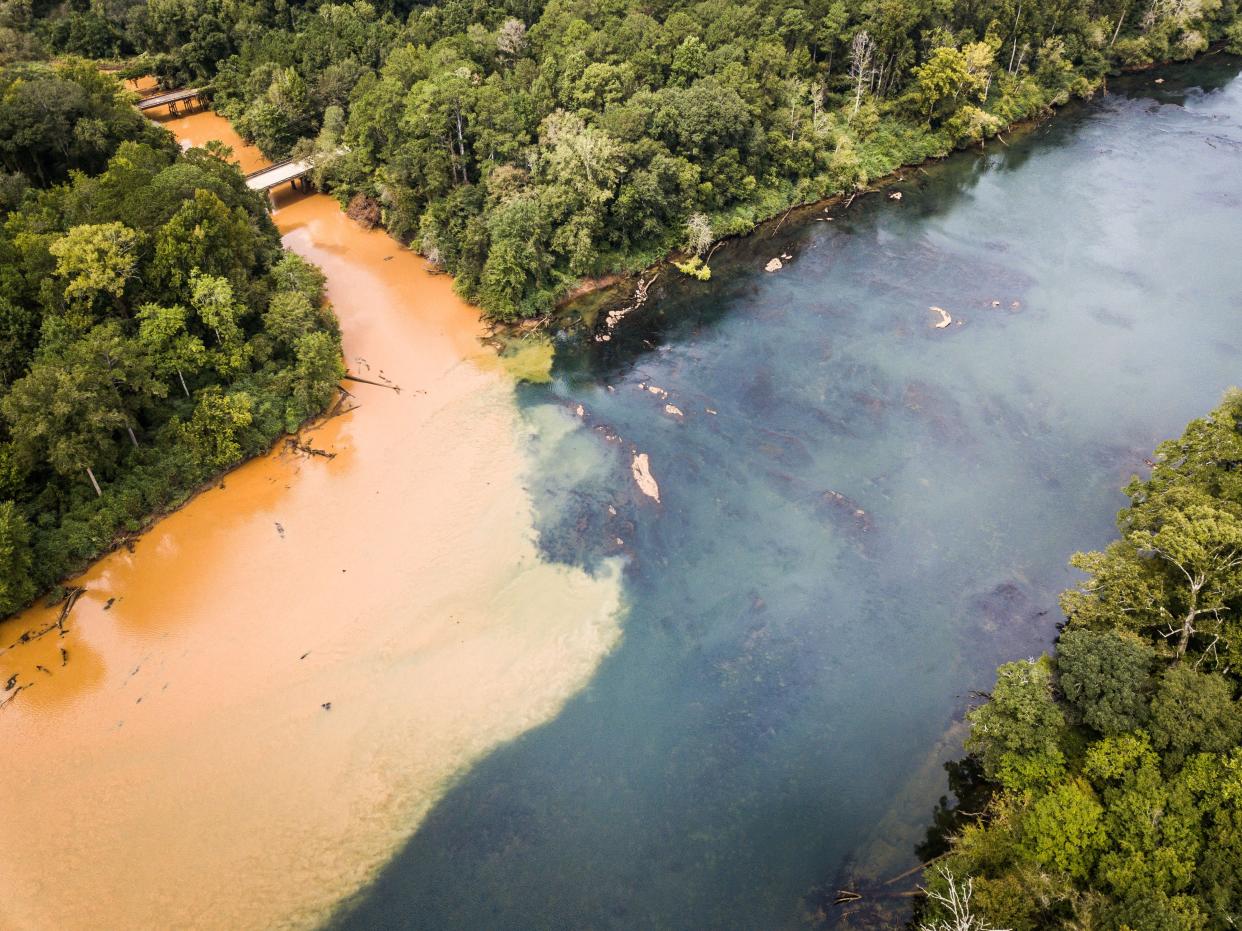'A long time coming': EPA settles pollution case against Alabama solar farm after four years

After four years of investigations and cooperation, the U.S. Department of Justice and the Environmental Protection Agency have settled with AL Solar, a solar farm in rural Alabama, over violations of the Clean Water Act.
“The development of solar energy is a key component of this administration’s efforts to combat climate change,” EPA Acting Assistant Administrator Larry Starfield said in a statement. “These settlements send an important message to the site owners of solar farm projects that these facilities must be planned and built in compliance with all environmental laws, including those that prevent the discharge of sediment into local waters during construction.”
The DOJ and EPA announced settlements with three other solar farms this month as well.
For the Alabama farm, though, Chattahoochee Riverkeeper Jason Ulseth said the announcement has been “a long time coming.” His group was the first to investigate AL Solar’s violations and report them to the EPA and the Alabama Department of Environmental Management.
In the fall of 2018, Chattahoochee Riverkeeper employee Henry Jacobs carefully flew his drone along the bends of the river. He was looking for the red flags of pollution — spills in the water or anything unusual. This was part of his routine and just one way he and his team sought to preserve and protect the Chattahoochee River.
That day in October, Jacobs spotted a substantial plume of muddy water flowing from Oseligee Creek in Chambers County, Alabama, into the Chattahoochee. The cloud of sedimentation entered the river just upstream from the City of West Point, Georgia, where there had been reports of problems with the drinking water treatment.
“A lot of people don't realize that sediments, dirt that comes off our earth's surface and our construction sites when it comes in large quantities, is one of the most damaging types of pollutants into our river systems,” Ulseth said. “Not only does it cause a lot of environmental harm in terms of harming ecosystems, fish and invertebrate reproduction, but it also causes a lot of economic harm.”
Using the drone, Jacobs and Ulseth were quickly able to trace the damage to where it originated in LaFayette.
“We found the massive solar field that was being constructed in Alabama. That was the source of all of that sedimentation coming into the Chattahoochee River,” Ulseth said.
By driving around the site, Ulseth and his team found a “tremendous amount” of sediment taken from the ground and washed into nearby waterways. This, he said, explained the troubles that West Point, Georgia, was having with its drinking water.
“It actually caused a lot of damage to a drinking water intake in a municipality that has to clean all of that mud out of the water before they can send that water to their customers,” Ulseth said. “In our discussions with that municipality, they have been making efforts to actually move their drinking water intake.”
Those efforts have continued, even with the settlement made earlier this month.
Chattahoochee Riverkeeper reported these findings to the EPA and ADEM, but they also contacted the AL Solar’s developers to help them fix the situation.
“There were simultaneous paths of cooperation,” Ulseth said. “Because of the size of the site, and the magnitude of the violations and the damage that was caused, it took a very long time for all of this to play out.”
Now, the solar farm has stabilized and come into compliance with the law.
Under the settlement, AL Solar will pay a $250,000 civil penalty to the United States and a $250,000 civil penalty to ADEM. Moreover, in an “effort to offset impacts created by the solar site construction,” the project contractor and the site owner both made contributions to support Chattahoochee Riverkeeper’s West Point Lake Floating Classroom. It is an on-the-water environmental education program that launched in 2015 and has welcomed nearly 17,000 students, teachers and adults.
Hadley Hitson covers the rural South for the Montgomery Advertiser and Report for America. She can be reached athhitson@gannett.com. To support her work, subscribe to the Advertiser or donate to Report for America.
This article originally appeared on Montgomery Advertiser: Solar farm in LaFayette to pay $500K for Clean Water Act violations

